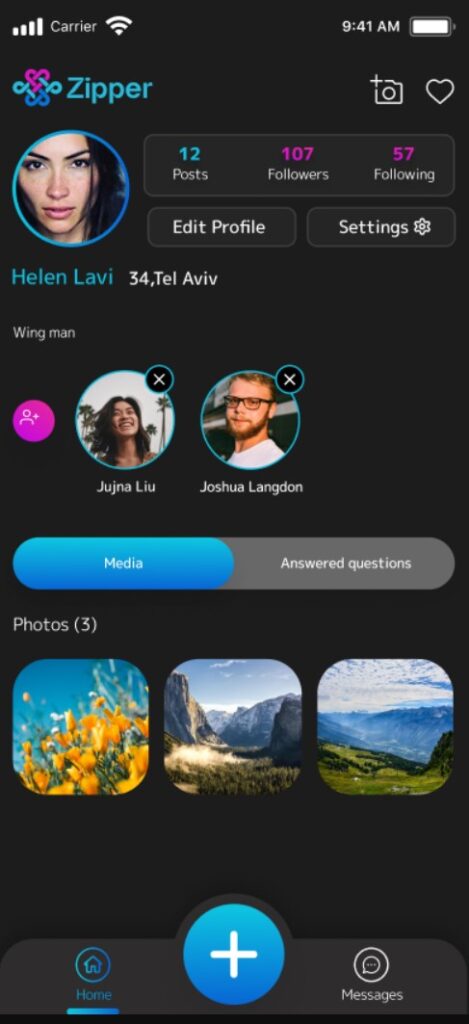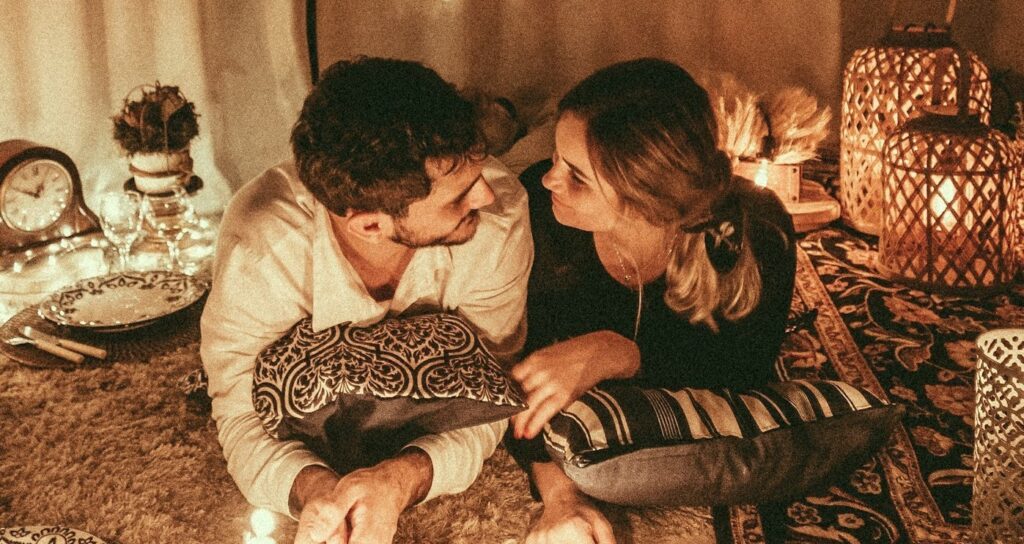It is a truth universally acknowledged that what you see when browsing dating apps is not always what you get. Images are filtered, biographies are embellished and even personal details like age and height are tweaked, often leaving those looking for love disappointed and disillusioned.
Veteran Israeli real estate entrepreneur Guy Tzuberi is determined to put a stop to such antics and make the entire digital dating experience more palatable, with a new mobile app that has been a years-long passion project.

In a style reminiscent of video dating in the 1980s, Zipper requires all users to upload a video of themselves. These videos, which can last just a few seconds, let prospective matches see them talking about themselves – showing more of their real personality than you can get from an easily altered image.
“Everybody says it’s not about looks, it’s about the character of the person,” Tzuberi tells NoCamels. “You cannot know the character of a person only from a picture.”

To remedy this, each new user has to record a brief video about themselves, using the in-app recording facility.
“We want to hear your voice, your tone, intonation. You need to introduce yourself, your name and age for 5 to 10 seconds tops,” Tzuberi says.
“In other apps, you see only a picture and swipe left or right. It’s like a catalog where people buy by looking.”
The in-app video, which directly accesses the user’s camera, is also a way to ensure that the person really is who they say they are and that there are no cases of catfishing – the use of fictitious accounts by fraudsters in order to lure in unsuspecting victims.
And in a format more akin to a social media platform than a dating app, users can scroll through these introductory videos one after the other, without having to enter each individual user’s account.
Once the initial video is completed, the user can then provide more details about themselves, adding further clips and images and answering optional questions about themselves, their hobbies and interests from a long list provided by the app.
“There is a lot of loneliness and people don’t start conversations,” he says of many traditional dating app users. On Zipper, however, ice-breaking topics of conversation are given to you and your potential matches through the question and answer section on the user profile.
Members of the app can also upload social media posts to their profile and even include video testimonials from other people talking about them.
Sign up for our free weekly newsletter
Subscribe
“You have a wingman in the app!” Tzuberi says.
The app also deviates from the practices of some other dating services by only letting potential matches contact one another if they have both “followed” the other’s account. Unless the follow is mutual, neither party can contact the other.
This, according to Tzuberi, adds another layer of protection for potentially vulnerable users and takes the pressure off for someone who does not necessarily want to leap immediately into a potentially intense encounter.
“You don’t have to decide right away,” Tzuberi says. “In other apps, you have to decide on the person you see – yes or no. Here you can scroll up and down and select which profiles you want to see.”
Driving the idea, he explains, was the desire to make the dating app experience smoother and safer for users, especially for those who find approaching another person intimidating.
“I have had this idea for 10 years,” he says. “I saw the pain of the [dating] app users – they don’t speak, they don’t start a conversation, and they say the apps are very risky because there is a lot of catfishing and bots, and they do not really know who is on the other side.”
Tzuberi says the solution was obvious to him, but no one was rising to the challenge. Eventually, he decided to take the plunge and create his own app – named Zipper because he wants to see people zip together and as a reference to the word “pair.”
He says that – ironically – Israel’s ongoing war with Hamas in Gaza has actually led to an upswing in demand for dating sites, but the conflict has meant a downturn in potential investors for him as the ones he had lined up changed their minds when the conflict erupted.

Having invested more than half a million shekels of his own money to keep the project going, Tzuberi says he now needs funding from people who share his vision to help ease the loneliness of the lovelorn.
The newly launched app is only currently available for Android phone users, but an iPhone version is currently in beta and will be released very soon, he says.
“In the 21st century, everybody wants to be asked about themselves, so we are letting them,” Tzuberi says. “The app is built for the people.”
Related posts

Rehabilitation Nation: Israeli Innovation On Road To Healing

Harnessing Our Own Bodies For Side Effect-Free Weight Loss





Facebook comments